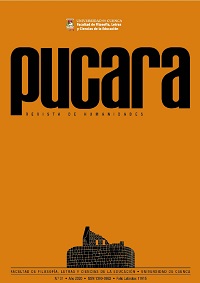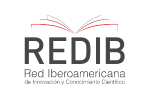Enhancing L2 Young Learners’ Speaking Skill through Content-Based Games
DOI:
https://doi.org/10.18537/puc.31.07Keywords:
Enfoque cuantitativo, juegos basados en contenido, destreza de expresión oral, subdestrezaAbstract
This research project was focused on answering the following questions: (1) To what degree does the use of content-based games inside the English class help sixth-grade students from Unidad Educativa Particular “Rosa de Jesús Cordero” (Catalinas) to enhance their L2 speaking skills? (2) Which subskill would have the greatest impact by developing oral communication in an L2 class content? There were sixty-eight students as participants, who were divided into two groups of thirty-four students each at the beginning of the school year. The students of each group did not have a homogenous English level. Content-based games learning strategy was applied inside the classroom to encourage the students to improve their L2 speaking skills. A pre test and post test were applied to the treatment and the control group to measure the participants’ speaking skills before and after the intervention. Additionally, ten games were planned and applied based on the curriculum content. The quantitative approach was developed in this research. Findings revealed that the use of content-based games learning strategies had a significant impact on the students on the subskill message for the treatment group.
Downloads
References
Abukhattala, I. (2012). Krashen’s Five Proposals on Language Learning:
Are They Valid in Libyan EFL Classes. Journal of English Language Teaching. 6(1), 1-4. https://doi:10.5539/elt.v6n1p128
Aimin, L. (2013). The Study of Second Language Acquisition Under Socio-Cultural Theory. American Journal of Education Research. 1(5), 162-167. https://doi: 10.12691/education-1-5-3
Arias, M., Castillo, L., Gonzalez, P., Espinoza, F., Ochoa, C., Quiñonez, A., Solano, L. & Ulehlova, E. (2015). EFL Teaching in the Amazon Region of Ecuador: A Focus on Activities and Resources for Teaching Listening and Speaking Skills. English Language Teaching, 8(8), 94-103. https://doi:10.5539/elt.v8n8p94
Bada, S. (2015). Constructivism Learning Theory: A Paradigm for Teaching and Learning. Journal of Research & Method in Education. 5(6), 66-70. https://doi: 10.9790/7388-05616670
Ballester, A. (2014). Meaningful Learning in Practice. Journal of Education and Human Development. 3(4), 199-209. https://doi:10.15640/jehd.v3n4a18
Bowo, Y. (2014). The Effect of Using Taboo Game to Ninth Graders´ Speaking Skill. SMP Pangudi Luhur Jakarta, 165-170.
Buitrago, R. & Ayala, R. (2008). Overcoming fear of speaking in English through meaningful activities: A study with Teenagers. 1-24.
Calle, A., Calle, S., Argudo, J., Moscoso, E., Smith, A. & Cabrera, P. (2012) Los profesores de inglés y su práctica docente: Unestudio de caso de los colegios fiscales de la ciudad de Cuenca, Ecuador. MASKANA, Vol. 3, No. 2, 2012 p1-17
Creswell, J. (2014). Research Design. SAGE Publications, Inc. 4th Edition. 1-342.
Dewi, R., Kultsum, U. & Armadi, A. (2017). Using Communicative Games in Improving Students’ Speaking Skills. English Language Teaching, 10, 1st ser., 63-71. https://doi: 10.5539/elt.v10n1p63
Dornyei, Z. (2001). Motivational Strategies in the Language Classroom. Cambridge University Press. 1-163.
Du, X. (2009). The Affective Filter in Second Language Teaching. Journal of Asian Social Science. 5(8), 1-4. https://doi: 10.5539/ass.v5n8p162
Ellidokuzoğlu, H. (2014) How to apply the Natural Approach in an unnatural setting. Military Inquiry (Stratiotiki Epitheorisi -Στρατιωτική Επιθεώρηση). 1-8.
Fitri, R. & Gurning, B. (2013). Improvement students in speaking through team games tournament techniques.
Gozcu, E. & Caganaga, C. (2016). The importance of using games in EFL classrooms. Cypriot Journal of Educational Science. 11(3), 126-135. https://doi: 10.18844/cjes.v11i3.625
Honarmand, R., Rostampour R. & Abdorahimzadeh, S. (2015). The Effect of Game Tic Tac Toe and Flash Cards on Zero Beginners’
Vocabulary Learning. International Journal of Educational Investigations. 2(3), 27-41.
Kasker, C. (2009). The newest communication research on classroom motivation. Center for Teaching Excellence, United States Military Academy.
Khan, N. & Ali, A. (2010). Improving the speaking ability in English: The students ‘perspective. Journal of Social and Behavioral Sciences.(2), 3575-3579. https://doi:10.1016/j.sbspro.2010.03.554
Krashen, S. & Terrel, T. (1995). The Natural Approach Language Acquisition in the Classroom. Prentice-Hall Europe.
Miller, S. (2003). Vygotsky’s educational theory in cultural context. 1-19. Ministerio de Educación del Ecuador. Currículo de los Niveles
de Educación Obligatoria Subnivel Medio. English as a Foreign Language for Subnivel Medio. 449-528. Segunda edición, 2019. https://educacion.gob.ec/wp-content/uploads/downloads/2019/09/EGB-Media.pdf
Moayad, M. (2011). The effect of using educational games on the students’ achievement in English language for the primary stage.
Rijal, S., & Arifah, N. (2017). Teaching productive skills through VARK. Journal Pemikiran Penelitian Pendidikan dan Sains. 12-18.
Roehl, A., Linga, Sh. & Shannon, J. (2013). The Flipped Classroom: An Opportunity to Engage Millennial Students Through Active Learning Strategies. Journal of Family & Consumer Sciences. 105(2), 44-49.
Smolucha, F. (1989). The Relevance of Vygotsky´s Theory of Creative Imagination for Contemporary Research on Play. 1-12.
Toro, V., Camacho, G., Pinza, E. & Paredes, F. (2018). The Use of the Communicative Language Teaching Approach to Improve Students’ Oral Skills. English Language Teaching, 12(1), 110-118. https://doi: 10.5539/elt.v12n1p110
Urrutia, W, & Vega, E. (2010). Encouraging Teenagers to Improve Speaking Skills through Games in a Columbian Public School. 12(1), 11-31.
Wang, Y., Shang, H. & Briody, P. (2011). Investigating the impact of using games Teaching Children English. International Journal of Learning & Development. 1(1), 1-15. https://doi:10.5296/ijld.v1i1.1118
Wang, Z. (2014). Developing Accuracy and Fluency in Spoken English ofChinese EFL learners. Journal of English Language Teaching.
(2), 1-9. https://doi:10.5539/elt.v7n2p110
Yolageldili, G. & Arikan, A. (2011). Effectiveness of Using Games in Teaching Grammar to Young Learners. Elementary Education Online. 10(1), 219-229.
Downloads
Published
How to Cite
Issue
Section
License
Copyright (c) 2020 Cristina Alexandra Juca Castro, Susana Ximena Orellana Mora

This work is licensed under a Creative Commons Attribution-NonCommercial-ShareAlike 4.0 International License.
Copyright © Autors.

You are free to:
 |
Share — copy and redistribute the material in any medium or format |
 |
Adapt — remix, transform, and build upon the material for any purpose, even commercially. |
Under the following conditions:
 |
Attribution — You must give appropriate credit, provide a link to the licence, and indicate if changes were made. You may do so in any reasonable manner, but not in any way that suggests the licenser endorses you or your use. |
| NonCommercial — You may not use the material for commercial purposes. | |
| ShareAlike — If you remix, transform, or build upon the material, you must distribute your contributions under the same license as the original. |
| No additional restrictions — You may not apply legal terms or technological measures that legally restrict others from doing anything the licence permits. |












